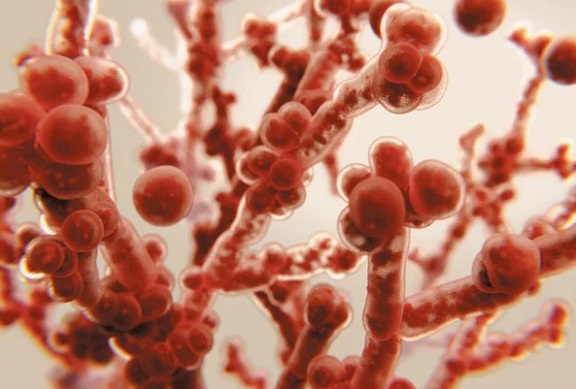Nikhil Prasad Fact checked by:Thailand Medical News Team Nov 10, 2025 3 months, 3 weeks, 1 day, 31 minutes ago
Medical News: In a remarkable medical case from Brazil, doctors have reported the world’s first known infection of a COVID-19 patient by a rare fungus called Sarocladium implicatum. This uncommon organism, usually found in plants, has now been identified as a surprising and dangerous opportunistic pathogen capable of infecting humans when their immune systems are severely weakened as a result of SARS-CoV-2. Researchers from the Universidade de São Paulo’s Faculdade de Medicina de Ribeirão Preto, Faculdade de Ciências Farmacêuticas de Ribeirão Preto, and the Departamento de Clínica Médica led the investigation and published the case as a medical warning to hospitals worldwide. It is suspected that many such cases were possibly never diagnosed in the past.
 Rare Fungus Emerging as an Opportunistic Pathogen Amid COVID-19
A Patient’s Battle with a Hidden Fungal Enemy
Rare Fungus Emerging as an Opportunistic Pathogen Amid COVID-19
A Patient’s Battle with a Hidden Fungal Enemy
The patient, a 64-year-old man with a history of chronic lung disease, was admitted to hospital after developing severe COVID-19 symptoms including fever and breathing difficulty. As his condition worsened, he was transferred to intensive care and placed on a ventilator. After weeks of battling multiple infections and complications, including kidney injury and pneumonia caused by hospital-acquired bacteria, his immune system was weakened by high-dose steroids and antibiotics. It was during this critical phase that an unusual fungal infection appeared. According to this
Medical News report, laboratory tests revealed the presence of Sarocladium implicatum—a plant fungus almost never seen in human blood. Genetic sequencing confirmed the identity of the pathogen, marking it as the first known case linked to COVID-19.
Breakthrough Diagnosis and Successful Treatment
Doctors were initially puzzled when standard antibiotics and antifungal drugs like fluconazole failed to control the persistent fever. A computed tomography (CT) scan revealed a suspicious cavity in the patient’s lung, prompting further investigation. Blood cultures showed a filamentous fungus, which molecular testing confirmed as Sarocladium implicatum. The fungus was resistant to some antifungal medications but moderately responsive to voriconazole, which was then administered for two weeks. Following treatment, the patient’s fever subsided, and subsequent tests showed no fungal growth in his bloodstream. Long-term follow-up scans showed his lung cavity had healed, and his breathing improved significantly after one year.
Why This Case Matters for COVID-19 Survivors
This case highlights how COVID-19 can weaken the body’s natural defenses, creating opportunities for rare infections. Factors like steroid therapy, prolonged hospitalization, and immune suppression can allow uncommon fungi to invade vital organs. Sarocladium species, once thought to affect only plants, are now being recognized as emerging hospital pathogens capable of spreading through contaminated equipment or medical solutions. The researchers warn that these i
nfections are easily misdiagnosed because the fungus resembles more common pathogens such as Fusarium or Aspergillus.
A Wake-Up Call for the Medical Community
The study concludes that Sarocladium implicatum should be considered a potential cause of severe lung and bloodstream infections in immunocompromised COVID-19 patients. Hospitals must use advanced molecular methods for accurate detection and ensure rapid antifungal intervention to save lives. This discovery reinforces the urgent need for vigilance in managing fungal co-infections during and after viral epidemics. As the researchers emphasized, preventing such opportunistic infections depends not only on proper treatment but also on understanding how new pathogens exploit weakened human immunity.
The study findings were published in the peer-reviewed journal: SciFlo Brazil
https://www.scielo.br/j/rimtsp/a/LRTG97sPyxjLWQmhgpg65pN/?format=html&lang=en
For the latest
COVID-19 News, keep on logging to Thailand Medical News.
Read Also:
https://www.thailandmedical.news/articles/coronavirus
https://www.thailandmedical.news/articles/long-covid
